Search Results
Showing results 161 to 180 of 421

Dancing Raisins
Source Institutions
In this activity, learners will explore density and it's relationship with mass.
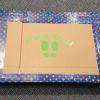
Paper Cup Stool
Source Institutions
In this activity, learners will explore how and why weight distribution works.
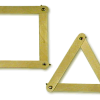
Strong Shapes
Source Institutions
Is a square stronger than a triangle? Use tongue depressors to build simple shapes. Then apply a little weight to them and see what happens!
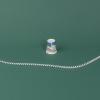
Anti-Sound Spring
Source Institutions
What happens when two wave pulses meet in the middle? Send waves down a spring to watch them travel and interact.
Size Them Up: Learning About Volume and Capacity
Source Institutions
In this activity, learners will put a set of containers in order by capacity. Would the tallest container hold more or less water than the wide, short one?
Fair Shares: Predict Equal Shares
Source Institutions
Use this activity to build division and number sense into any snack time or whenever there is a limited set of things to share among a group: If we deal these out, could everyone get two pieces?
Penny Jar: Estimating for Charity
Source Institutions
Learners will collect pennies to donate and will combine charitable giving with estimating and calculating with money. To start choose a charity or something to save up for together.
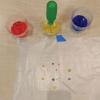
Water Drop Exploration
Source Institutions
In this activity learners will explore how water moves on waxed paper. Learners will use science process skills such as using tools and making observations as they explore surface tension.
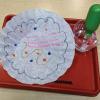
Chromatography Observations
Source Institutions
In this activity, learners will explore how water affects marker on filter paper. Learners will use science process skills such as making observations and predictions as they explore color.

Globe at Night
Source Institutions
In this international citizen science activity, learners measure their night sky brightness and submit their observations into an online database.

Snake Kite
Source Institutions
In this activity, learners will explore the physics of air by making a snake kite.
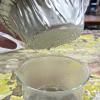
Wonderful Weather
Source Institutions
In this activity, learners conduct three experiments to examine temperature, the different stages of the water cycle, and how convection creates wind.
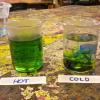
Energetic Water
Source Institutions
In this activity, learners explore how hot and cold water move. Learners observe that temperature and density affect how liquids rise and fall.

All About Air
Source Institutions
In this activity, learners with explore the gases present in air. They will then build their own wind cannons and challenge family and friends to a friendly competition.

Measuring UP!
Source Institutions
In this math lesson, learners use inchworm measuring tools to measure the lengths of several objects in the room.

Stereo Sound
Source Institutions
We listen to stereo music systems, tv's, and radios because it simulates being where the sound originates.
Mystery Jars: Make Your Own: Estimating and Counting
Source Institutions
Learners make a counting/estimating jar to exchange with friends or bring home.
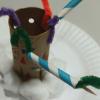
Coral Polyp
Source Institutions
In this activity, learners will create their own coral polyps - the basis for a coral reef.

Sticky Snot
Source Institutions
In this activity, learners create slime to model mucus and examine how it collects simulated particles. Mucus keeps particles from the environment out of our lungs when we breathe.
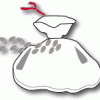
Static Electricity
Source Institutions
In this quick activity, learners explore static electricity using a plastic comb, wool cloth, puffed rice, and a plastic bag.
